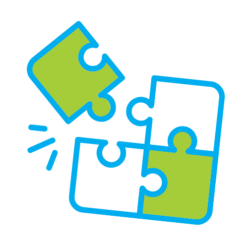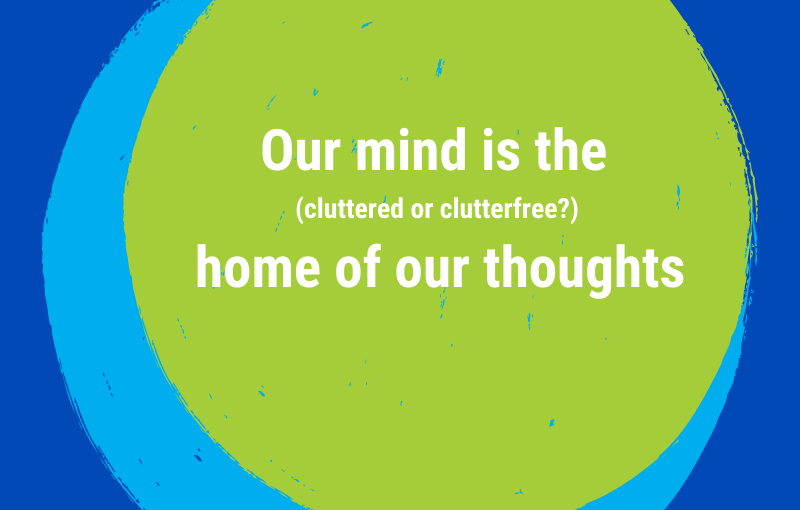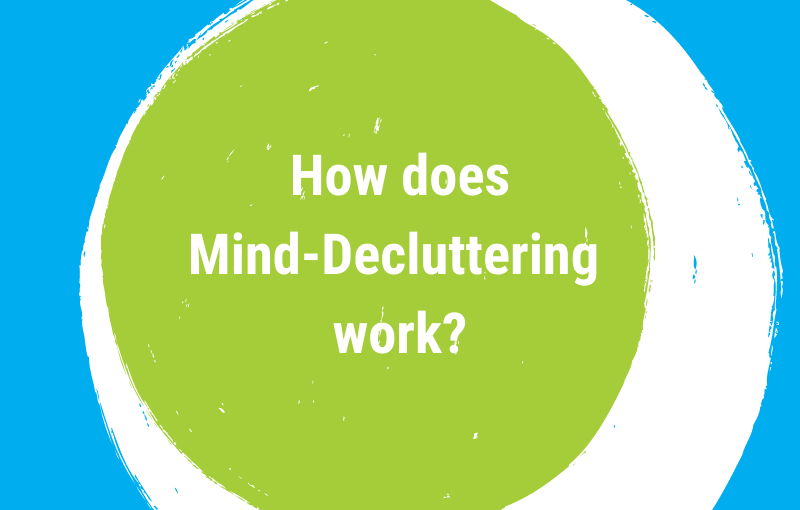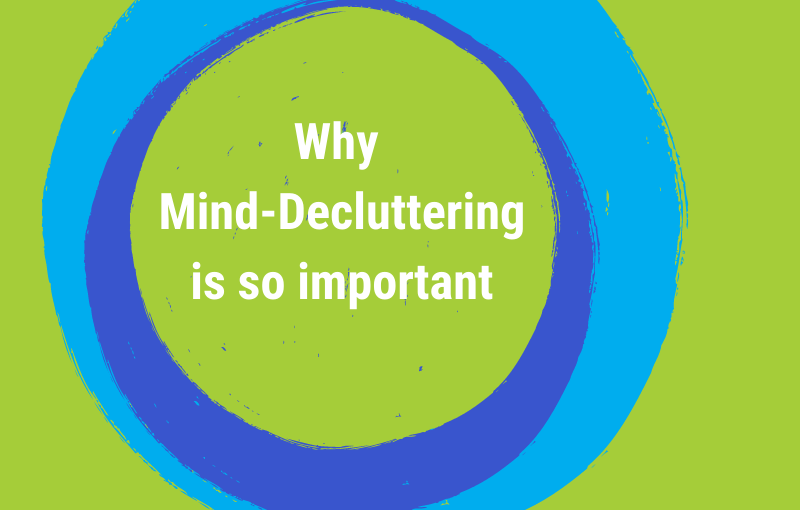We are the owners of our mind – and responsible for our mental clutter
The clutter in our home often creates negative feelings, such as stress, frustration, helplessness and even embarrassment.
However, negative feelings and thoughts are not only a consequence of clutter, in most cases they actually are the cause of clutter:
The clutter in our mind – negative thoughts and feelings that don’t serve us – has a huge impact on the amount of physical clutter in our home.
Mental/emotional causes of physical clutter
We all have our special and very personal reasons why we bring too much stuff into our home and get rid of too little.
-
- Impulsive and excessive shopping trips, for example, are often attempts to avoid or cover feelings of frustration, stress, boredom, etc.
- Feelings of guilt, shame, or obligation let us hold on to belongings that we actually don’t need/use/like.
- Grief, anxiety, or loneliness can create sticky emotional attachments to certain things.
- Surrounding ourselves with too much stuff can be a subconscious strategy to make us feel safe and protected.
- etc.(What are your most important types of mind-clutter?)
If we want to make our home-decluttering projects sustainable successes, we first have to do some mind-decluttering.
We need to become aware of the thoughts and feelings that might be hidden behind our stuff. We have to be willing to invest time and effort in uncovering and removing any mental and emotional clutter.
Our thoughts are our most valuable ‘possessions’
Our thoughts are much more important than our physical belongings.
Our thoughts determine how we live our life: they determine how we feel, what we do (or don’t do) and what results we create in our life.
-
- If we, for example, think, ‘I have never been organised, I’ll never be able to create a clutterfree life’,
- we will have a negative feeling (such as overwhelm or resignation)
- which will probably cause us to procrastinate and postpone any decluttering activity.
- The result is that we continue living in a cluttered home.
Thus, if we want to declutter our home and our life, we have to declutter our mind first.
We are the owners of our mind – the home of our thoughts
We are all creating (more or less) clutter in our homes by bringing in too many (and often the wrong) things and by not letting go of the stuff that doesn’t serve us (any longer).
The same happens with our mind, the home of our thoughts.
Most of us haven’t been taught to deliberately declutter and organise our thoughts. We keep thinking thoughts that don’t assist us in living the life we want to live. We don’t throw out the thoughts that don’t serve us (any longer).
As the owner of our home, we are the ones who are responsible to keep it clutterfree and organised – to create and maintain the space and order we need to feel comfortable and relaxed at our place.
It’s the same with our mind. We are the owner of our mind and it is our responsibility to keep it clean and clear, and organise in a way that allows it to work efficiently and effectively.
And although we cannot control our outside circumstances (other people and their behaviour, our past, external events, etc.),
We can completely control what’s happening in our home and in our mind.
-
- We are in control of our home, we decide what we bring in and throw out (or don’t throw out), how the place looks and feels like, how spacious and orderly it is or how crammed and disorganised. We are free to choose the things we want to surround ourselves with, and we arrange and use them as we wish.
- We are also in control of our mind. We choose our thoughts, we decide what we believe – about ourselves, our family, our job, about our home (!), about our life – about everything. Then our thoughts and beliefs create feelings which fuel our actions which create the results in our life.
That’s why we have to be so very careful about which thoughts we offer a home in our mind!
If we are not happy about our current life situation, we we can ask ourselves:
-
- What’s going on in my mind right now?
- What am I thinking?
- Does it serve me?
- How does it make me feeling?
- And acting?
And then we can decide to change things to the better by starting to think differently.



